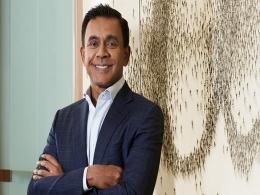Britain is searching for a new governor of the Bank of England to succeed Mark Carney in early 2020.
Chancellor Philip Hammond is hoping that concerns about Brexit will not deter potential applicants.
Below are possible contenders to run the BoE which oversees the world's fifth-biggest economy and its huge finance industry.
Andrew Bailey
The former deputy BoE governor was tipped by analysts as Carney's most likely successor. But delays to the search, after Carney extended his time in London, have raised questions about whether Hammond sees him as the best candidate.
Bailey, 60, was deputy governor with a focus on banks before becoming chief executive of the Financial Conduct Authority, a markets regulator. While at the BoE, Bailey helped to steer Britain's banks through the global financial crisis.
Heading the FCA is fraught with risks. Lawmakers criticised Bailey for not publishing all of a report into alleged misconduct by bank RBS. Bailey cited privacy restrictions.
As FCA boss, Bailey sits on important panels at the BoE that oversee banks. Although he has never been interest-rate setter, he once ran the BoE international economic analysis team.
Rajan, 56, headed the Reserve Bank of India from 2013 to 2016, and was chief economist at the International Monetary Fund between 2003 and 2006 when he warned of the risk of a financial crisis.
Now a professor at Chicago Booth business school, Rajan has published a book on dissatisfaction with markets and the state - touching on some of the underlying issues behind Brexit.
Rajan unexpectedly did not seek a renewal of his three-year term at the RBI, having faced hostility from some sections of Prime Minister Narendra Modi's BJP party who disliked his less nationalist stance and brief forays into political territory.
Rajan declined to comment when asked by Reuters last week whether he would consider a return to active policymaking.
Minouche Shafik
Egyptian-born Shafik, 57, was a BoE deputy governor between 2014 and 2017, in charge of markets and banking, including the central bank's asset purchase programme. She quit the job early to become director of the London School of Economics.
Between 2008 and 2011 she was the top civil servant at Britain's ministry for overseas aid and was then deputy managing director at the International Monetary Fund, where she represented the fund in the Greek debt crisis.
Shafik would become the first woman to head the BoE, and was only its second female deputy governor.
Ben Broadbent and Dave Ramsden
Broadbent, 54, and Ramsden, 55, are deputy governors for monetary policy and for markets and banking respectively.
Broadbent, a former Goldman Sachs economist who trained as a classical pianist, is respected for his economic analysis but has less experience on banking oversight.
Ramsden was the Treasury's chief economic advisor.
The two other BoE deputy governors, Jon Cunliffe and Sam Woods, are less likely contenders. Woods focuses mostly on financial regulation while Cunliffe - a former British ambassador to the European Union - would be aged 66 at the start of the term which usually runs for eight years.
Shriti Vadera
Vadera, 56, has no central banking experience but is seen as a contender due to her current role as non-executive chairwoman of Santander UK, one of Britain's biggest banks, and her time as a junior business minister during the financial crisis.
Vadera served as a minister from 2007 to 2009 after a career in investment banking and a period at the finance ministry.
In 2008, she was part of a small group of ministers and officials who devised a plan worth hundreds of billions of pounds in loan guarantees to keep high-street banks in business.
Andy Haldane
The BoE's chief economist, Haldane has developed a reputation for floating unconventional ideas, including the possibility that music apps such as Spotify and multiplayer online games might give central bankers just as a good a sense of what is going on in the economy as traditional surveys.
In 2012, he praised the anti-capitalist Occupy movement for suggesting new ways to fix the shortcomings of global finance. Haldane has experience of both sides of the BoE, having served as executive director for financial stability, overseeing the risks to the economy from the banking system. But he might be seen as too much of a maverick to take the job of governor.
A Labour Party governor?
The prospect of the left-wing Labour Party taking power has grown as Prime Minister Theresa May struggles to break the Brexit impasse.
Labour leader Jeremy Corbyn and his would-be finance minister John McDonnell are socialists and have in the past proposed that the BoE should fund investment in infrastructure, a big change from its current focus on inflation.
Former members of Labour's economic advisory committee included U.S. academic and Nobel Prize winner Joseph Stiglitz and Ann Pettifor, a British economist who is an austerity critic, and former BoE rate-setter David Blanchflower.







